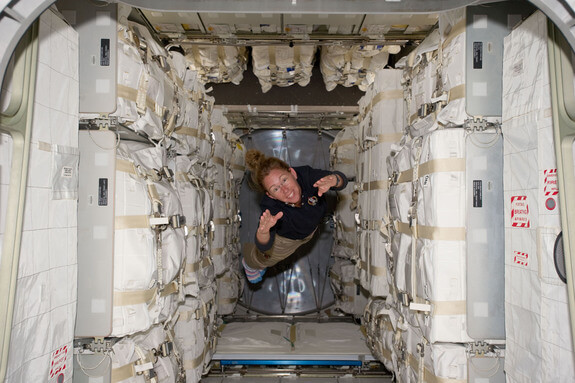Israeli biomedical research examined the effect of a lack of gravity on the length of telomeres. Telomeres are DNA sequences that play a crucial role in the biological clock and the aging process of cells

Towards the end of the US manned space program, the American team of astronauts, staying on the International Space Station, completed the transfer of the Israeli biomedical experiment from the International Space Station to the space shuttle Atlantis in preparation for its landing on Earth during the week.
Israeli biomedical research examined the effect of a lack of gravity on the length of telomeres. Telomeres are DNA sequences that play a crucial role in the biological clock and the process of cell aging. Expanding our understanding of telomeres and their activity under different conditions may lead to an improvement in our ability to deal with cell aging processes. The analysis of the samples of the Israeli experiment after their return to Earth will be carried out by a company
Telome Health, which specializes in measuring the length of telomeres using advanced methods. The American company was founded by the winner of the Nobel Prize for Medicine in 2009, Prof. Elizabeth H. Blackburn, who discovered the telomerase enzyme.
Dr. Eran Shankar, head of the Aerospace Medicine Research Center explains that "telomeres are an important and significant component of the cell's biological clock. If we understand how they work under different conditions - it is possible that in the future we will be able to deal more successfully with the processes that affect the life cycle of the cell."
The head of the Fisher Institute, Brigadier General Assaf Agmon, sees special importance in Israel's participation in the experiments launched into space, and adds that "with the landing of the last space shuttle, an important chapter in Israeli biological research activity in space ends." General (Retd.) Herzl Budinger, Chairman of the Fisher Institute concludes "With the sum of 30 years of activity of American space shuttles, this is an achievement for the State of Israel because we are returning to Earth an experiment with great research potential aboard NASA's last shuttle."
